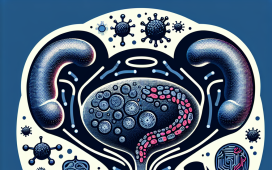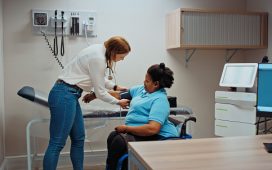The human body is home to trillions of bacteria, viruses, and other microorganisms. This collection of microorganisms is known as the microbiome. The microbiome plays a vital role in human health, from digestion to immunity.
In recent years, there has been a growing interest in the microbiome and its impact on health. This interest has led to a number of exciting discoveries, including the following:
- The composition of the microbiome can vary significantly from person to person.
- The microbiome can be affected by a number of factors, including diet, lifestyle, and medication.
- An unhealthy microbiome can contribute to a number of diseases, including obesity, diabetes, and inflammatory bowel disease.
- There are a number of ways to improve the health of the microbiome, including eating a healthy diet, exercising regularly, and taking probiotics.
The microbiome revolution is still in its early stages, but it has the potential to revolutionize our understanding of health and disease. As we learn more about the microbiome, we can develop new and effective ways to improve health and well-being.
The Gut-Brain Connection
One of the most exciting areas of microbiome research is the gut-brain connection. The gut and the brain are connected by a two-way communication system called the gut-brain axis. This system allows the gut to communicate with the brain and vice versa.
The gut-brain axis is thought to play a role in a number of conditions, including:
- Mental health: The gut-brain axis is thought to play a role in a number of mental health conditions, including depression, anxiety, and autism.
- Neurological conditions: The gut-brain axis is also thought to play a role in a number of neurological conditions, including Parkinson’s disease and Alzheimer’s disease.
- Autoimmune diseases: The gut-brain axis is also thought to play a role in a number of autoimmune diseases, such as rheumatoid arthritis and multiple sclerosis.
By understanding the gut-brain axis, we can develop new and effective treatments for a number of conditions.
The Future of the Microbiome Revolution
The future of the microbiome revolution is very bright. As we learn more about the microbiome, we can develop new and effective ways to improve health and well-being.
Here are some of the exciting developments that are happening in the field of microbiome research:
- Probiotics: Probiotics are live microorganisms that are similar to the bacteria that naturally live in the gut. Probiotics have been shown to improve gut health and to help treat a number of conditions, such as diarrhea, constipation, and irritable bowel syndrome.
- Prebiotics: Prebiotics are food ingredients that promote the growth of beneficial bacteria in the gut. Prebiotics are found in a number of foods, including fruits, vegetables, and whole grains.
- Fecal microbiota transplantation: Fecal microbiota transplantation (FMT) is a procedure in which stool from a healthy donor is transplanted into the colon of a patient with a serious gut infection. FMT has been shown to be an effective treatment for a number of conditions, including Clostridium difficile infection and inflammatory bowel disease.
As we learn more about the microbiome, we can develop even more effective ways to improve health and well-being. The microbiome revolution is just beginning, and it is sure to have a major impact on medicine in the years to come.








